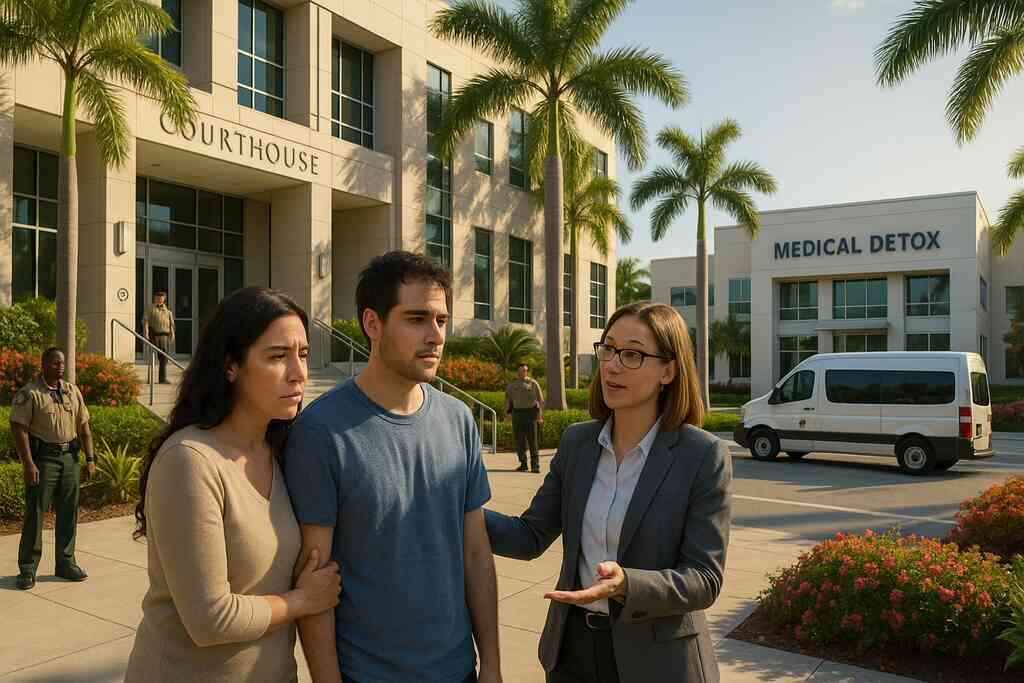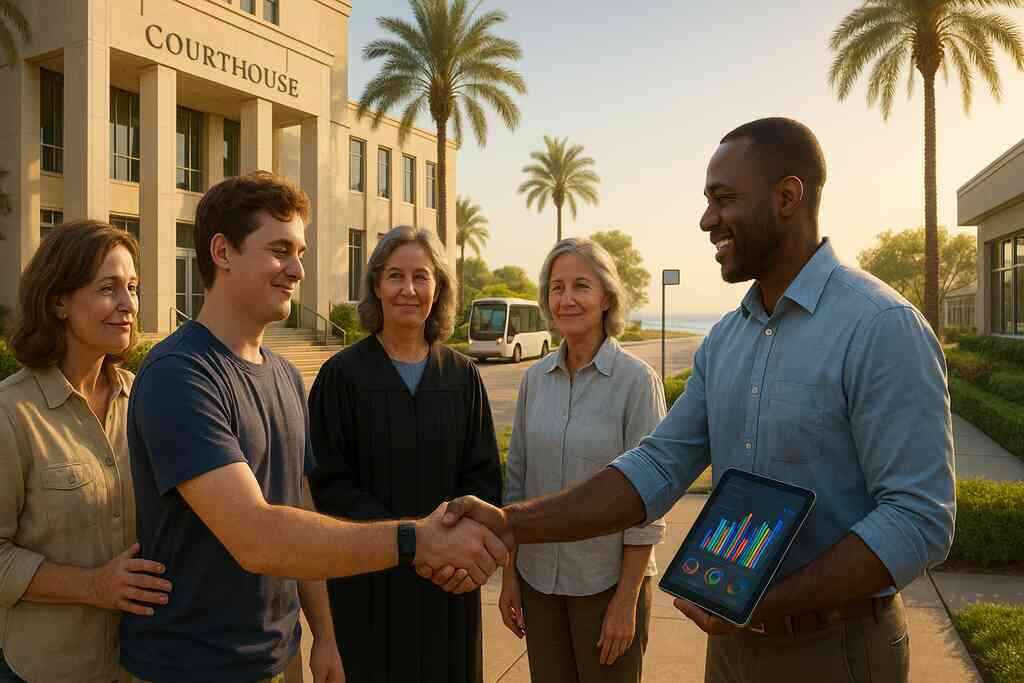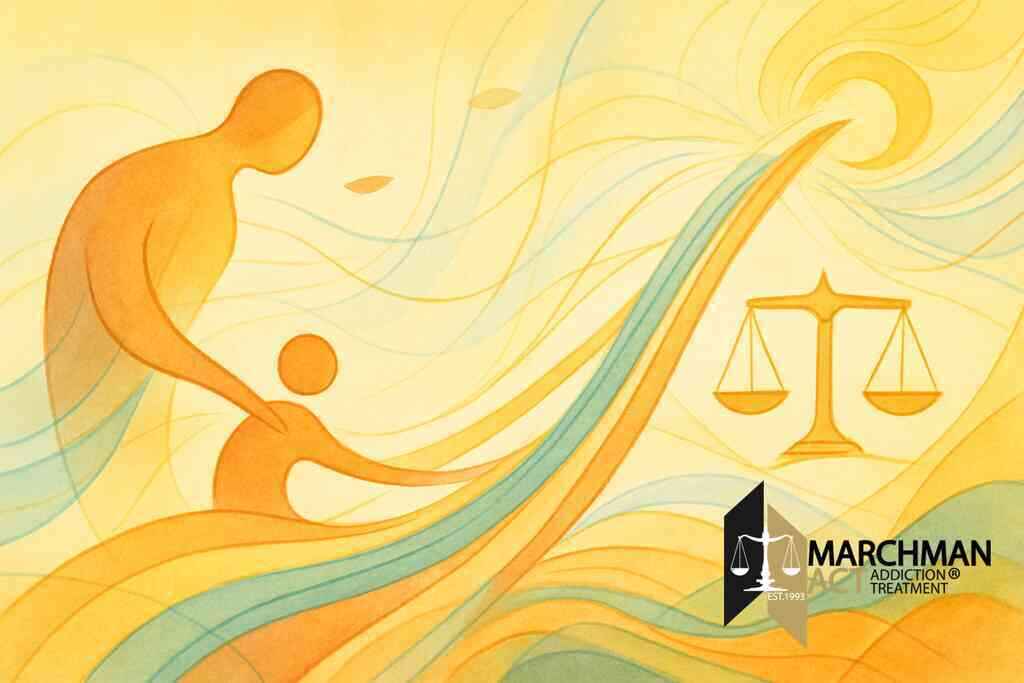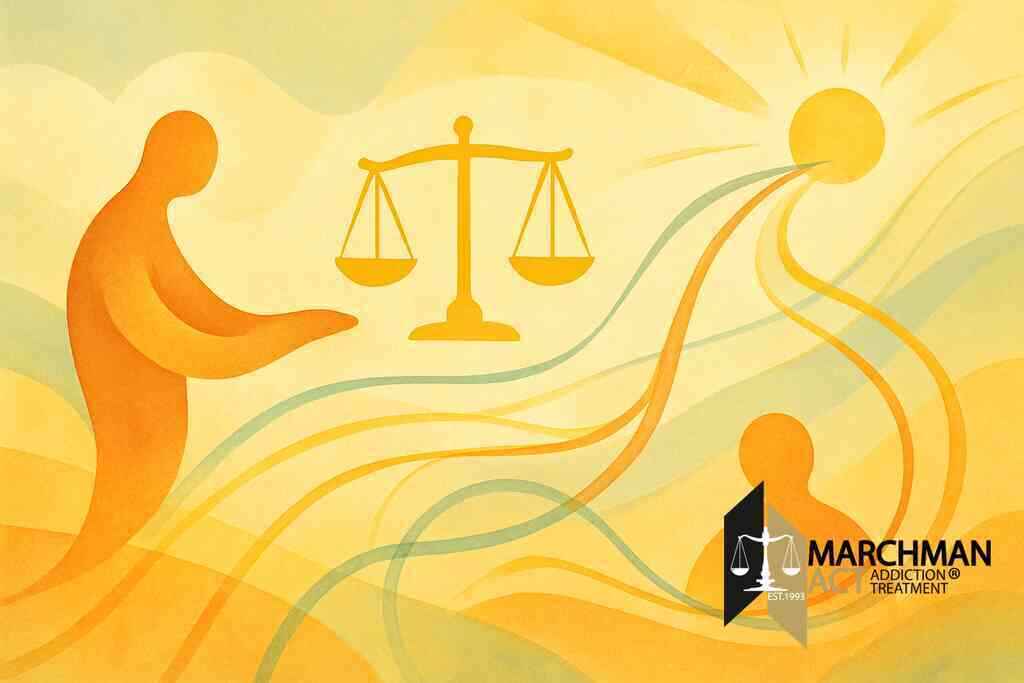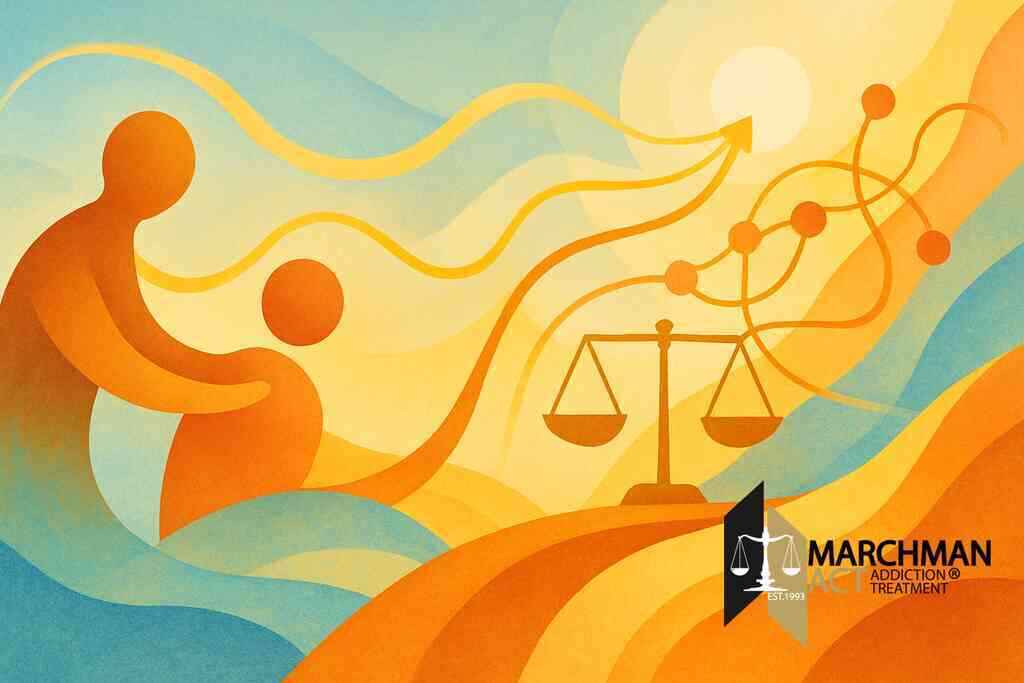Radar Up: Recognizing Substance Abuse Hiding in Plain Sight Near You
Florida substance abuse trends 2025 What the data reveals
Florida remains ground zero for shifting substance abuse patterns, and 2025 data prove it. Overdose clusters now migrate from urban cores to suburban corridors within a matter of months. Methamphetamine resurgence runs parallel to synthetic opioid spikes, creating dangerous poly-use scenarios. Florida district courts report an increasing number of petitions under the Marchman Act, Florida interventions, reflecting the urgency of families. Analysts confirm a fourteen-percent rise in involuntary treatment filings compared to 2025, aligning with insights from the Impact of the Act on substance abuse solutions statewide.
Researchers attribute part of this escalation to pandemic-era stress that lingers beneath Florida’s sunny exterior. Social isolation, economic shocks, and fentanyl-laced counterfeit pills keep pushing numbers upward. Substance abuse civil commitment mechanisms in Florida therefore, receive bipartisan support, as lawmakers view them as lifesaving public health tools rather than punitive measures. The Florida court system also streamlines electronic filing to accelerate emergency hearings, demonstrating adaptability. Consequently, families now find civil procedures more accessible, empowering earlier interventions before tragedies unfold.
Signs of withdrawal and crisis checkpoints requiring intervention
Every relapse begins with subtle physiological tremors that many relatives mistake for ordinary fatigue. Dilated pupils, erratic sleep, and gastrointestinal distress often surface days before a full-blown crash. Unchecked, these cues escalate into seizure risk, respiratory depression, or violent outbursts that jeopardize loved ones and bystanders. Understanding these red flags is crucial because timely recognition enables families to file a Marchman Act petition rather than wait for an overdose. For a clinical checklist, review the Signs of withdrawal requiring immediate action resource.
Crisis checkpoints also emerge in behavioral arenas, including sudden job abandonment, secretive cash use, and disappearing acts during holidays. Such patterns hint at growing psychological dependence that physical symptoms only confirm. Addiction treatment services emphasize that combining observable signs with reliable toxicology screening strengthens any Marchman Act petition. Courts give weight to documented evidence, so journaling incidents and collecting medical reports build a persuasive legal narrative. Acting on the first clear indicators saves time, money, and often a life.
Near me vs near you: why local context shapes response
Geographic nuance matters because resources cluster differently across Florida’s sixty-seven counties. A “court-ordered rehab near me” search in Miami-Dade yields diverse bilingual programs, whereas rural Panhandle residents may find only one detox hub within seventy miles. Socioeconomic factors also dictate whether insurance covers transportation, making proximity a determinant of treatment compliance. Families, therefore, weigh local capacity before selecting legal venues, ensuring the respondent can actually reach assigned services. To streamline decisions, explore tools that locate Marchman Act services near your area.
Local culture also influences stigma, support networks, and the availability of peer mentorship. Coastal college towns may offer abundant AA meetings near you and progressive harm-reduction outreach, while smaller communities lean heavily on church-led recovery circles. These cultural variables impact relapse triggers and social accountability, so effective plans integrate neighborhood realities. The Marchman Act recognizes this by allowing judges to tailor orders that fit county-specific infrastructures. Ultimately, a ZIP-code-savvy strategy optimizes both legal leverage and human outcomes.
Leveraging the Marchman Act: Florida Turning Compassion into Court-Ordered Change
Florida families confronting active addiction often feel powerless, yet the Marchman Act treatment options in Florida transform caring concern into enforceable court action. This pioneering statute fuses compassionate intent with structured Florida civil procedures, creating a balanced pathway toward recovery. By converting emergencies into orderly substance abuse civil commitment Florida hearings, relatives finally gain legal traction. Each successful petition demonstrates how community empathy can coexist with constitutional safeguards. Understanding this synergy is the first step toward sustainable change, moving beyond desperation.
Florida civil procedures for substance abuse civil commitment
At heart, the law resides within specialized Florida civil procedures addiction cases that mirror other protective injunction frameworks-petitions filed under Chapter 397, empowering judges to order assessment or detox within seventy-two hours. Clerks guide relatives through affidavits, ensuring statements satisfy probable cause for substance impairment and refusal of voluntary care. Because cases remain civil, standards of evidence prioritize apparent reason rather than criminal guilt. This nuance makes the statute a humane alternative to punitive arrests while still delivering court-mandated detox that Florida residents urgently require.
Documentation drives momentum. Families strengthen a file by attaching treatment records, police reports, and dated notes describing signs of withdrawal requiring intervention. The clerk stamps paperwork, schedules an ex parte hearing, and transmits notice to the Florida district courts’ Marchman Act cases list. Judges often reference prior rulings to uphold due process, yet they move swiftly to prevent overdose. For deeper guidance, review the Legal procedures for filing a Marchman Act petition before attending the courthouse.
Step-by-step Marchman Act petition from paperwork to police service
The Marchman Act process, step by step, begins with a confidential consultation at the clerk’s office, where staff provide Form 402A and arrange for notarization. Petitioners list the respondent’s details, recent crises, and attempts at voluntary treatment, thereby satisfying the statutory criteria. Next, clerks forward documents to a judge, who issues an emergency pick-up order when danger is imminent. Law enforcement then executes service, escorting the individual to an approved facility rather than a jail. This swift police service model aligns with Florida’s response to the addiction crisis and its priorities, preserving dignity while protecting life.
After stabilization, clinical evaluators submit findings within five days, triggering a second hearing that sets the lengthier treatment. Judges weigh medical recommendations, insurance coverage, and the availability of court-ordered rehabilitation options near me. In metropolitan areas, Miami-Dade court-ordered rehab pathways offer bilingual detoxification and intensive outpatient programs that Florida residents trust. Rural counties may instead contract telehealth providers to maintain continuity. Either way, the order remains enforceable statewide, compelling attendance or subjecting individuals to contempt.
Baker Act vs Marchman Act: choosing the right legal pathway
Confusion often arises between the state’s mental health and addiction statutes. The Baker Act authorizes seventy-two-hour psychiatric holds for imminent self-harm or danger to others. Conversely, the Marchman Act targets impaired judgment from drugs or alcohol that undermines self-care but may not signal suicide intent. Comparing both laws clarifies which door to knock on during a crisis. Study the Baker Act versus Marchman Act comparison guide to prevent misfiled paperwork and costly delays.
Because both laws share due process safeguards, judges carefully examine the overlap to avoid double commitment. Families must articulate specific substance-related behaviors, not generalized depression, when invoking the addiction statute. Doing so keeps Florida’s involuntary treatment law balanced and constitutional. Clinicians can also file parallel petitions if psychiatric and substance disorders collide, yet courts often merge hearings for efficiency. Recognizing these distinctions enables petitioners to select the appropriate legal pathway without wasting precious time.
Cost timeline and legal rights for families and respondents
Many Floridians fear spiraling court fees, yet the Marchman Act petition cost and timeline remain surprisingly manageable. Filing is often free, though some counties charge a nominal twenty-five-dollar service fee. Treatment expenses are typically covered by personal insurance or Medicaid, while uninsured respondents may be eligible for county indigent funds. Hearings usually conclude within ten days, reinforcing the statute’s reputation for speed. For a statewide snapshot, the Overview on modern Marchman Act legislation clarifies typical costs and timeframes.
Legal rights under the Marchman Act, Florida protocols protect both the petitioner and the respondent. Judges appoint counsel if an individual lacks the resources to afford representation, ensuring their constitutional rights are protected. Respondents can contest allegations, request continuances, or appeal rulings to higher courts. Families also gain standing to receive progress updates, improving transparency that is rare in private rehab settings. This equilibrium fosters trust and reduces Florida civil lawsuits for addiction treatment alleging due-process violations.
Inside the Florida district courts and the Florida Supreme Court rulings shaping interventions
Every county interprets the statute through its own docket culture, yet Florida district courts’ Marchman Act cases share core milestones. Broward judges, for instance, now employ virtual testimony to speed rural witness participation. Procedural bulletins, such as the Broward County Marchman Act guidance in practice, highlight innovations like electronic subpoenas. Neighboring circuits replicate these tactics, demonstrating how grassroots jurisprudence refines statewide policy. Consequently, case law evolves every month, refining the definitions of impaired judgment and imminent danger.
At the macro level, Florida Supreme Court substance abuse rulings anchor consistency across sixty-seven counties. Landmark opinions affirm that compelled treatment does not violate privacy when evidence shows repeated overdose or hospital elopement. The high court also upholds sanctions for non-compliant facilities, reinforcing accountability within Comprehensive addiction treatment programs under the Act. These precedents reverberate through appellate benches, guiding future petitions and ensuring equal protection. Staying informed about the Marchman Act laws updates keeps advocates ahead of shifting legal currents.

Beyond the Bench Crafting a Treatment Continuum that Follows the Zip Code
Court-mandated detox and emergency stabilization options
Court-mandated detoxification programs in Florida serve as the emergency bridge between a judge’s signature and genuine medical safety. Under the substance abuse civil commitment Florida guidelines, facilities must accept respondents within hours, not days. Physicians deploy evidence-based protocols that manage withdrawal while protecting constitutional rights affirmed in Florida civil procedures. Families often search “emergency substance abuse intervention near me,” only to discover different options appear county by county. The Marchman Act streamlines those choices, ensuring that every ZIP code offers at least one state-approved stabilization hub.
Emergency units range from hospital wings to freestanding detox centers, which are often connected to local health departments. Urban corridors provide twenty-four-hour intake, whereas rural counties rely on mobile crisis teams partnered with sheriff departments. Because funding shifts annually, staying updated saves critical minutes during overdose spikes. Petitioners who document previous elopements strengthen their case for rapid admission, persuading judges that immediate detention prevents loss of life. That urgency explains why court-ordered rehab near me queries continue rising across Florida search engines.
Intensive Outpatient Programs and RECO Intensive bridging legal orders to care
Once acute detox ends, Intensive Outpatient Programs Florida clinicians step forward to sustain momentum. Unlike residential rehab, IOP schedules let participants work or study while attending structured therapy blocks. Judges favor this model because attendance reporting dovetails with ongoing court oversight, creating measurable accountability. Moreover, the intensive outpatient framework offers cognitive-behavioral therapy, medication management, and family systems therapy within a flexible schedule. That versatility makes IOP an ideal middle lane between compulsory custody and complete autonomy.
Families regularly request providers experienced with Marchman Act Florida interventions, and one standout is Reco Intensive Outpatient Rehab in Delray Beach. Their multidisciplinary team tailors curriculum around legal mandates, notifying courts if sessions are skipped. Virtual platforms extend reach to respondents lacking transportation, solving a common compliance barrier highlighted in Florida district courts’ Marchman Act cases. By embedding relapse-monitoring technology, the program aligns clinical insight with judicial data needs. The result is a synchronized feedback loop that bolsters both treatment quality and legal integrity.
Top Sober House Florida listings and RECO Institute sober living placement
Sober living residences serve as a physical buffer that shields individuals in early recovery from high-risk environments. Top sober house Florida listings emphasize drug testing, curfews, and peer leadership designed to reinforce courtroom directives. Residents share responsibilities, cultivate vocational goals, and attend nightly meetings, translating theory into lived routine. Rental rates remain lower than private apartments, making these houses accessible for individuals exiting costly detox stays. Judges view such environments as logical extensions of substance abuse civil commitment efforts.
Placement becomes even smoother through Reco Institute sober living near you in Florida, which coordinates directly with Intensive Outpatient Programs. Their admissions team cross-checks court documents to guarantee rule compatibility before move-in. Geography also matters; houses are deliberately situated near bus routes, employment hubs, and community colleges. This zip-code strategy minimizes relapse catalysts like isolation or transportation gaps, themes repeatedly cited in Florida civil lawsuits for addiction treatment negligence. By uniting location science with therapeutic oversight, sober living turns statutory orders into sustainable daily practice.
AA meetings near you, NA meetings near me, building peer scaffolding
Court mandates may initiate abstinence, yet peer scaffolding sustains it long after the court proceedings conclude. Twelve-step fellowships offeran unlimited, cost-free community that government budgets could never match. Online directories make finding AA meetings near you or NA meetings near me almost instantaneous. Digital platforms, including Alcoholics Anonymous meetings on demand, stream sessions for those in remote areas or quarantine. Judges often incorporate attendance logs into compliance checklists, reinforcing the bridge between civic duty and mutual aid.
Meeting culture also teaches respondents to request sponsors, share honestly, and celebrate milestones, complementing clinical milestones. Group diversity enables veterans, LGBTQ+ individuals, and young adults to find relatable peers quickly. Such specificity reduces stigma, thereby enhancing engagement among populations that have historically been wary of institutional authority. When combined with sober living curfews and IOP homework, peer meetings create a triple-layer defense against triggers. Therefore, peer scaffolding is not extracurricular; it is an indispensable component of addiction crisis response Florida strategies.
Long-term recovery planning integrating clinical care and community support
Sustained sobriety demands strategic foresight that outlives court supervision. Professional teams craft individualized relapse-prevention schemas covering employment, trauma therapy, and medication adherence. Financial planning joins the conversation because debt and job insecurity often reignite cravings. Families gain structured roles, learning how to balance accountability with empathy rather than enabling. Each element dovetails with the statutory framework, translating legal requirements into lifelong wellness habits.
Strategic planning also draws on evidence-based resources like Relapse prevention planning with Marchman Act orders. The guide recommends scheduling follow-up court reviews even after formal discharge, maintaining a safety net should warning signs reappear. Technological aids, including smartphone breathalyzers and mood-tracking apps, provide therapists with real-time data. Employers are sometimes involved through voluntary disclosure agreements, which secure added accountability during stressful periods. Together, these tactics form a dynamic blueprint ensuring that the Marchman Act’s initial rescue evolves into an enduring transformation.
The New Neighborhood Blueprint for Sustainable Recovery
County by county Marchman Act navigation strategies across Florida
Florida’s patchwork of resources demands a county-specific roadmap before any petition is filed. Families in Orlando, for example, can explore Orange County, Florida, involuntary treatment help to confirm bed counts and judge availability. Meanwhile, residents of Duval or Lee counties need different tactics, because local clerks interpret Florida civil procedures in addiction cases through unique administrative rules. Gathering this intelligence first prevents clerical rejections that delay life-saving orders. It also helps petitioners match the respondent with court-ordered rehab options that actually exist near them.
Clerks routinely share calendars, but families still benefit from phone calls that verify submission windows. Many offices allow e-filing, but rural satellite offices may require hard copies. Checking these requirements ahead of time aligns paperwork with the Marchman Act process step by step, avoiding costly repeats. Remember, substance abuse civil commitment hearings in Florida move quickly once accepted, so preparation eliminates last-minute scrambles for notarization or witness statements.
Addiction crisis response, Florida resources everyone should save
Speed matters when an overdose looms, and every second counts. Families should program emergency substance abuse intervention near me hotlines and local mobile crisis units into their phones today. These contacts bridge the gaps while waiting for a hearing, offering interim support that is aligned with Florida’s involuntary treatment law safeguards. Many sheriffs now run addiction response teams that divert users away from jail toward detox. Such programs align perfectly with Florida district courts’ Marchman Act cases, reinforcing public safety without resorting to criminalization.
Digital maps of intensive outpatient programs, Florida agencies and top sober house Florida listings also warrant bookmarking. Knowing where to transport a loved one once a judge signs a pickup order avoids transport delays. Additionally, the directories list insurance partnerships, ensuring affordability before commitments are made. Finally, download printable checklists that cover signs of withdrawal requiring intervention, so every family member recognizes the crisis thresholds.
Marchman Act success stories reframing stigma with evidence
Community perceptions shift most rapidly when data meets a heartfelt narrative. Recent success stories under the Marchman Act reveal graduation rates surpassing 70 percent when legal leverage is paired with comprehensive clinical care. In Miami-Dade, innovations described in the Miami-Dade Marchman Act success strategies show that culturally matched therapy increases retention. Graduates return to the workforce, reduce hospital readmissions, and avoid Florida civil lawsuits for addiction treatment negligence. These wins counter the stigma, proving that civil commitment can be a compassionate approach.
Families also report improved relationships after respondents complete reco intensive outpatient services plus residency at Reco Institute sober living. Structured accountability teaches responsibility while preserving dignity, shifting the conversation from punishment to partnership. Success metrics are circulating through Florida Supreme Court substance abuse rulings, encouraging judges statewide to continue refining their orders.
Action steps for families to file a Marchman Act petition today
First, collect evidence, including hospital notes, police reports, and any documentation of failed voluntary rehabilitation attempts. Second, download Form 402A and follow the family guide to Marchman Act petitions provided by your county clerk. Third, schedule a notary appointment; unsigned affidavits stall the Marchman Act Florida interventions clock. Next, file the packet, pay any minimal costs associated with the Marchman Act petition, and request immediate review. Finally, attend the ex parte hearing prepared to describe danger and refusal of care.
During these steps, confirm the respondent’s legal rights under the Marchman Act and Florida statutes, including eligibility for a public defender. Bring two witnesses if possible, because corroboration strengthens probable cause. After the judge signs, coordinate with addiction treatment services near you to ensure smooth transportation. Staying organized transforms compassion into enforceable change.
Future watch Marchman Act law updates and evolving civil commitments
Legislators continue refining Florida substance abuse trends 2025 policies to address fentanyl analogs, which complicate detox. Bills under review may extend the assessment window from 72 to 96 hours, giving clinicians more time to stabilize complex cases. Stakeholders monitor updates to the Marchman Act laws through committee newsletters, ensuring that advocacy voices remain heard. Another proposal explores tele-court appearances to expedite rural hearings, a boon for nearby addiction resources and support networks.
National dialogue on Civil commitment for addiction care in the U.S. also influences Tallahassee decisions. Emerging research links longer outpatient monitoring with lower relapse, pressing lawmakers to fund expanded AA meetings near you and NA meetings near me integrations. Families should track these shifts because new rules could adjust filing thresholds or insurance reimbursements. Staying informed secures long-term recovery planning Florida residents can trust.

Frequently Asked Questions
Question: What is the Marchman Act process step by step, and how does the Marchman Act Addiction Treatment guide families through it?
Answer: The Marchman Act process, step by step, begins with gathering evidence of impaired judgment and failed voluntary attempts, moves to filing Form 402A at the clerk’s office, proceeds to an ex parte hearing, and culminates in court-mandated detox that Florida facilities must honor within 72 hours. Our team of Florida intervention specialists guides you through every stage, from drafting affidavits to notarizing documents, coordinating sheriff pickups, and securing placement in trusted addiction treatment services near you. Because we handle dozens of Florida civil procedures and addiction cases each month, we are familiar with each county’s nuances and can shave days off the timeline, thereby increasing safety and peace of mind.
Question: How does the Marchman Act differ from the Baker Act when I’m looking for court-ordered rehab near me?
Answer: The Baker Act targets acute psychiatric crises, while the Marchman Act targets Florida interventions specifically addressing substance abuse and civil commitment under Florida statutes. If danger stems from drugs or alcohol overdoses, violent intoxication, refusal of the Marchman Act is the right door. Our counselors quickly assess whether Florida involuntary treatment law criteria are met and help you avoid misfiled petitions that can cause costly delays. We also liaise with the clerks of Florida district courts’ Marchman Act cases to ensure that your loved one is sent to a licensed detox center, not a psychiatric ward, thereby receiving medically appropriate care from the outset.
Question: In the blog post “How the Marchman Act Redefines Substance Abuse Near You,” Florida substance abuse trends for 2025 were highlighted. How do these trends impact my decision to file a Marchman Act petition today?
Answer: Florida substance abuse trends 2025 show fentanyl-laced pills and methamphetamine surging into suburban areas, shrinking the window between first relapse signs and fatal overdose. With overdose clusters moving in weeks, quick action under the Marchman Act becomes more critical than ever. Filing now, before the crisis escalates- let’s judges impose emergency substance abuse intervention near me orders that can literally save a life. Our real-time data dashboard monitors local spikes, allowing us to advise families when risk levels rise, ensuring petitions align with current addiction crisis responses and Florida priorities.
Question: What are the typical costs and timelines under Florida civil procedures, and can the Marchman Act Addiction Treatment help me navigate funding or insurance?
Answer: Most counties waive filing fees or charge less than $25, and hearings conclude in roughly 7-10 days. Treatment costs are typically covered by private insurance, Medicaid, or county indigent funds; our financial coordinators verify benefits, secure prior authorizations, and locate grant funds for uninsured clients. Because we partner with top sober house listings in Florida, intensive outpatient programs in Florida, and court-mandated detox units, we negotiate bundled rates that reduce out-of-pocket expenses. Our goal is transparent budgeting so finances never block lifesaving care.
Question: After the court mandates detox, what long-term recovery planning services do you provide, such as intensive outpatient programs, sober living, or AA meetings near you, for coordination?
Answer: Once stabilization is complete, our continuum of care includes RECO Intensive outpatient services for structured therapy, RECO Institute sober living placements for safe housing, and curated schedules of AA meetings near you or NA meetings near me to build peer support. We integrate medication management, family counseling, and job-readiness coaching, then submit compliance reports to the court to fulfill ongoing legal requirements under the Marchman Act and Florida orders. This full-spectrum plan converts a brief civil commitment into long-term recovery planning that follows your loved one’s ZIP code and life goals.




